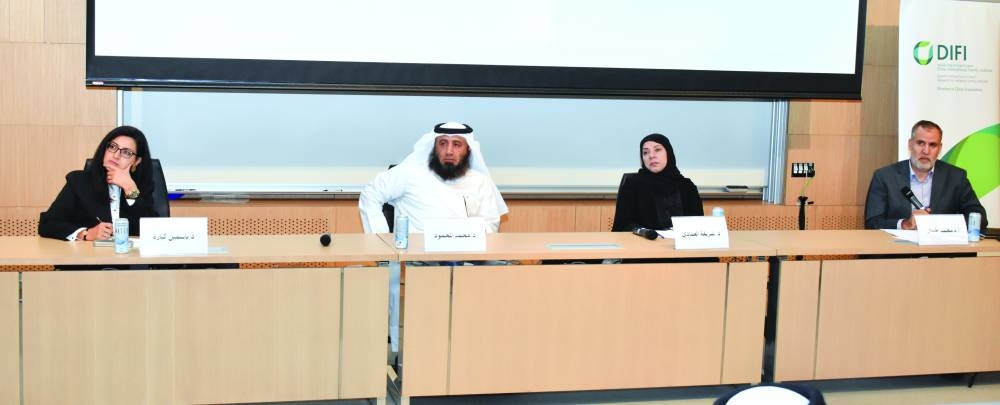The role of positive and active communication among family members in maintaining the well-being and stability of families was highly stressed last evening, where experts in field discussed the issue in a forum titled “Family silence and its social impacts”.
The forum was organised by Doha International Family Institute (Difi), member of Qatar Foundation, in co-operation with the College of Islamic Studies (CIS) at Hamad Bin Khalifa University (HBKU). The forum is part of a series of forums aimed at raising awareness and knowledge of the society on the dangers and challenges facing contemporary families and explores the related issues to work out some practical solutions.
The forum was moderate by Dr Mohamed El Gammal, Associate Professor of Master of Arts in Contemporary Islamic Studies at HBKU and the speakers were Dr Sherifa al-Emadi, Executive Director of Difi; Dr Mohamed al-Mahmoud, expert on family issues from the Ministry of Endowments (Awqaf) and Islamic Affairs; and Dr Yasmine Kabbara, Assistant Professor of Social Work in Qatar University. The forum enjoyed a considerable participation from among the persons interested in the issue, scholars, academics and media persons.
Dr al-Emadi stressed that family silence is considered among the leading causes for the collapse and failure of many families ultimately leading to divorce, especially in the first period of marriage. She pointed out that maintain active dialogue among the family members is key the success of their relations together, as lack of communication and open dialogue would eventually escalate issues of difference and lead up to the failure of relations. She said that it is very important to maintain positive and open communication among family members and make this a tradition and habit for relations to remain healthy.
Dr al-Mahmoud said that some persons have misconceptions about silence due to misinterpretations of the religious texts and cultural norms. He noted that this affects men more than women, which in time could become habit and lead to broken relations due to the lack of mutual understanding. He stressed that its necessary for a successful and durable relations that every family member assumes his or her adequate responsibilities, duties and roles and not to throw it on the other to relieve himself or herself. He noted that this does not mean that one party is above or below the other but rather an integration of roles where they complement each other within an atmosphere of intimacy and respect.
Dr Kabbara discussed the involved social issues of the topic stressing the need for more researches and studies in collaboration with the related entities to raise public awareness about the key role of effective communication for the wellbeing of the family. Accordingly, the speakers agreed that there is a pressing need to further promote the importance of maintaining constant communication among family members, where a culture of open dialogue is meant to protect the family and society as a whole.

The panellists at the forum Wednesday. PICTURE: Thajudheen
